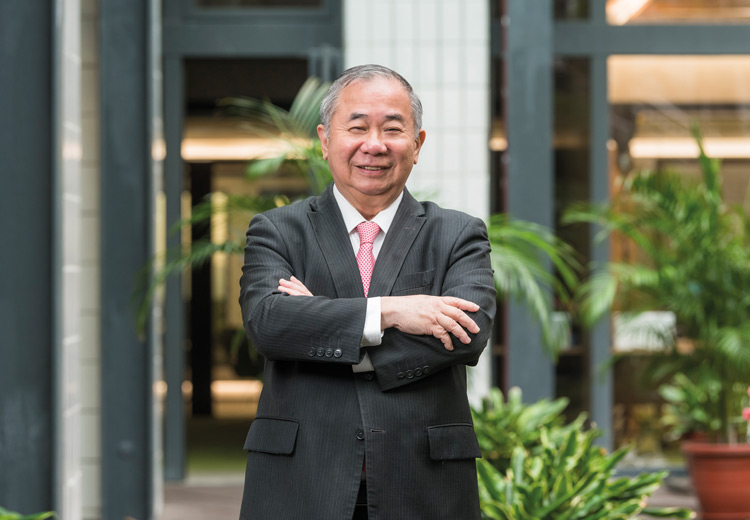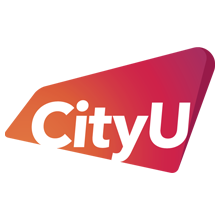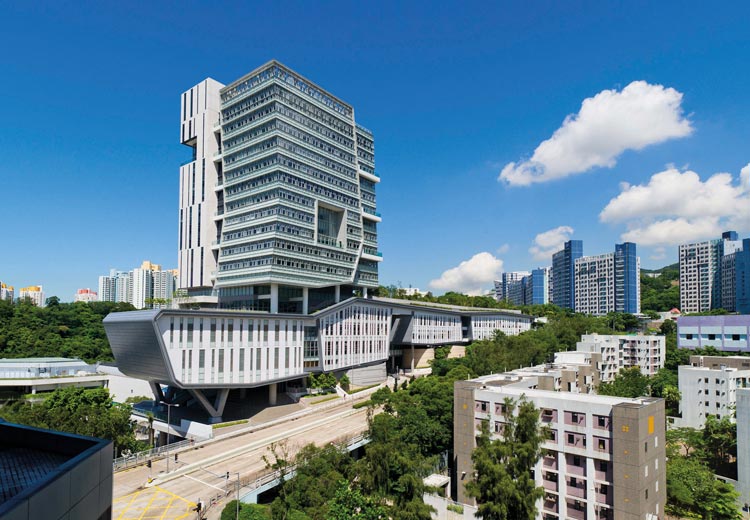Building local hope on a global scale
The new president of the City University of Hong Kong, Freddy Boey, believes it’s an exciting time to welcome students and staff to Hong Kong and hopes his global-to-local approach will inspire others

Sponsored by

Sponsored by

When Freddy Boey was a new undergraduate at Monash University in Australia, he was originally enrolled on a chemical engineering course. But when he wandered into the material science class next door, his interest was piqued. “The professor asked whether we knew that aeroplane wings could bend, and I thought ‘wow’. I was inspired to know more and ended up doing this instead,” Boey says. He believes that this “learning by inspiration and innovation” approach is what today’s universities need if they are to thrive and is something he will hold close to his heart as he begins his tenure as the president of City University of Hong Kong (CityU).
Boey comes to CityU as the successor to Way Kuo, who will retire from his presidency in May this year after 15 years in the role. Boey’s previous post was as deputy president of innovation and enterprise at the National University of Singapore, where he completed his doctorate. He believes “there are more similarities than differences” in leading a Hong Kong university after his time in Singapore, although he accepts that the solutions might not always be the same.
He acknowledges that there have been many headlines suggesting a student exodus from Hong Kong as young people search for overseas study opportunities, but he welcomes the challenge of boosting inward recruitment. “I am one of the contrarians who thinks that it’s an exciting time to come into Hong Kong, that talented scientists and professors will consider this destination an interesting challenge,” he says. “If you want world-class scientists you might think of US universities, but we’re increasingly seeing talent flowing back here because of the availability of resources and, in many cases, an emotional pull from this part of the world.”

He insists that CityU will forge its own path rather than mirroring its larger local rivals. “We’re only in competition with ourselves,” he says. “Our vision is to provide hope for young people and for them to become global citizens rather than to just be a top university.” Like many university leaders, Boey recognises that higher education has a crucial dual role of being globally connected but also serving the society and community in which it sits. “You don’t become a global university that has no local relevance,” he says. “We want to be an institution that Hong Kong residents are proud of because it is so global, but also because it’s that global connection that brings value to the local people.” With this in mind, one of Boey’s main aspirations in his new role is to facilitate as much global student exchange and internships as possible, because he feels that students learn best through experience.
With campus space at a premium, Boey hopes that faculty can embrace this as a strength rather than a limitation. “Having a small campus allows us to focus on what really matters. Our size means more collaboration between departments – owning space and buying equipment does not equate to doing research,” he says. A further challenge will be to extend the level of outreach the university has with the local community so it feels more embedded in the institution, he adds. He hopes he can welcome non-students onto CityU’s campus to use its facilities and move away from the perception that universities are full of “professors in ivory towers”. When it comes to working with the community, he will encourage both faculty and students to engage more with groups outside the classroom. “I want to make sure these are the things that staff and students value and want to do as part of their education, rather than just for academic credits,” he says.
For too many institutions, bureaucracy and hierarchy can get in the way of innovation, Boey believes. “You can’t do away with bureaucracy altogether, but you can support the university to have more collegiality,” he says. “The wrong model is confrontational – where the one who bangs the loudest gets their way. You need sound policies, but administration should be so efficient that you don’t even hear about it.” Often, Boey adds, good academics end up putting their energy into fighting administration and end up suffering a “death by a thousand cuts”. Or guidelines evolve into policies that somehow become diktats. “As professors, we want to do things that have never been done before, but there are often so many restrictive structures or dos and don’ts. You can’t have lawlessness, but we can just let guidelines be guidelines, and not allow them to morph inadvertently into rules. I just want to let professors be professors,” he says.
He feels that his predecessor has done a great job by putting CityU in a position to achieve the next level of innovation and connectedness. “I would like to see this university going from a teaching-centric university to a learning-centric one,” he explains. “You cannot necessarily say that if you have taught someone well they have learned well. Taking lectures and following a timetable – is this the best way to learn? Learning by inspiration, interaction and innovation have become today’s modes of learning.” When students enter the world of work, they are valued for how they respond to situations, not how well they perform in tests, he points out. “You don’t have to have the answers, but you need to know how to find your way to the answer. It’s not the content itself but the approach. It’s learning how to interact with people.”
Boey will apply this same open approach to managing his academic staff. His experience as provost at Nanyang Technological University (NTU) taught him the value of empowering others. “What excites me most about this role is to set talent free to achieve their academic potential. When I was at NTU, I found the most powerful word I could use was ‘approved’. Once you used it, people started doing well and feeling motivated. One of my jobs is to untie knots and set people free to do what they are capable of doing,” he concludes. “If I do this well and wisely, the talent we have will be maximised. We will hire good professors who over time become better, and the better become best. Then we hire more great people as a result. It’s a virtuous cycle.”
Read the article in the THE Asia University Rankings 2023.
Find out more about CityU.